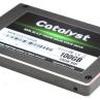Performance Application load times - RW File Copy tests
Performance Application load times - RW File Copy tests
Next to gaming where a cache will help out massively is obviously your default applications. Once they get cached, the next time and next and next and next they'll load up much faster.

We start off with a stopwatch in our hands and measure windows Boot time. We start after the BIOS post until the OS has loaded into the desktop. We run it five times.
The HDD entry is just that, caching off, then the first, second and third run have caching on. At the first cache run the system was as 'slow' as the HDD. However for RUN 2 and 3 we shaved off some serious booty time alright -- and we all like booty time ;)

For our second test we Internet Explorer 9 and load up Guru3D.com, on the 5400RPM HDD non cached that takes 15 seconds (yeah we did use a slow HDD drive. Once caching kicks in that's reduced to 10 seconds, and once fully cached after the 2nd run the load time crumbles down to 1~2 seconds, what we normally expect from SSD performance.
Mind you that as long as you on occasion use a particular application, it'll remain cached and thus fast loading.
Performance RW File Copy tests
In this round of benchmarks we start off with two new additions in our test suite, real-world file copy tests. Currently certain controllers benefit from compressed files, while others don't. Certain storage units hate small files, others work well with it. So it only makes sense to do some manual tests on that.
File copy write test - Slightly larger compressed files.
For the second real world file-copy test we take compressed data, like small JPG and MP3 files. We have them in random sizes from less than one KB up-to slightly larger 2MB files to emulate MP3 copying better (which most of you can relate to a notch better).

So we know that once we pass 16/32KB sizes, storage units speed up exponentially. Hence we increased the workload here towards 3 GB with 4272 compressed files in total, with a maximum files-size of 2MB. So to make you understand perfectly what we are doing here is that we drop just over 4000 MP3/JPG files onto the the drive, copied from a RAMDISK and measure the amount in seconds it takes for the storage unit to deal with it.
Again, the files are being copied from the RAMDISK in the amount of seconds you see above towards the tested storage unit. As you can see, the perf is 'OK', nothing breathtaking. This remains random data for the cache hence you'll see HDD performance here and not so much optimized cache performance. This is normal and expected.

